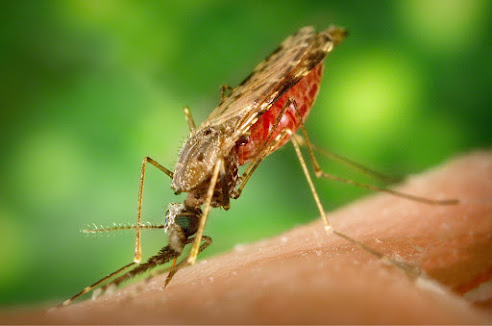 |
| Anopheles funestus, one of the common mosquito species that transmit malaria in Africa. Photo Credit: Oberholster Venita |
Based on data that span the past 120 years, scientists at Georgetown University Medical Center have found that the mosquitoes responsible for transmitting malaria in Africa are spreading deeper into southern Africa and to higher elevations than previously recorded. The researchers estimate that Anopheles mosquito populations in sub-Saharan Africa have gained an average of 6.5 meters (21 feet) of elevation per year, and the southern limits of their ranges moved south of the equator by 4.7 kilometers (nearly 3 miles) per year.
The study appeared February 15, 2023, in Biology Letters.
“This is exactly what we would expect to see if climate change is helping these species reach colder parts of the continent,” says Colin Carlson, PhD, an assistant research professor at the Center for Global Health Science and Security at Georgetown University Medical Center and lead author of the study. “If mosquitoes are spreading into these areas for the first time, it might help explain some recent changes in malaria transmission that have otherwise been hard to trace back to climate.”



.jpg)




.jpg)







.jpg)